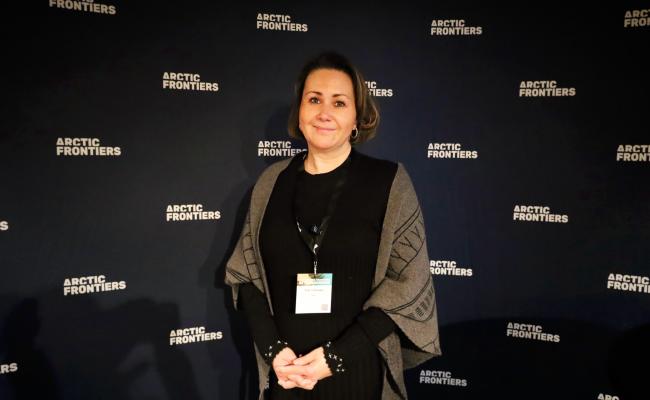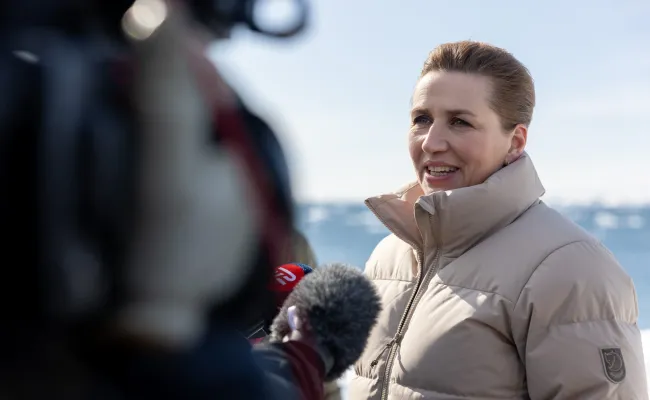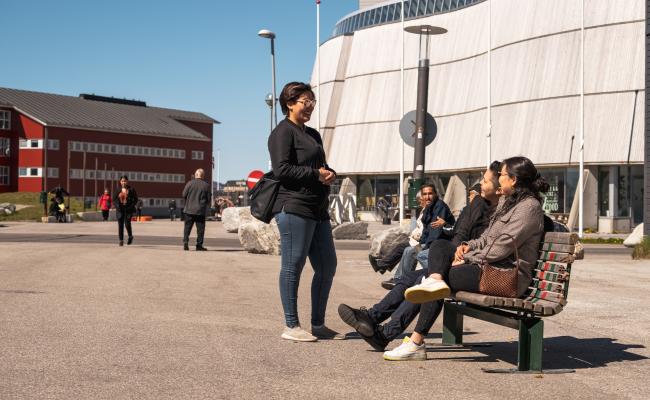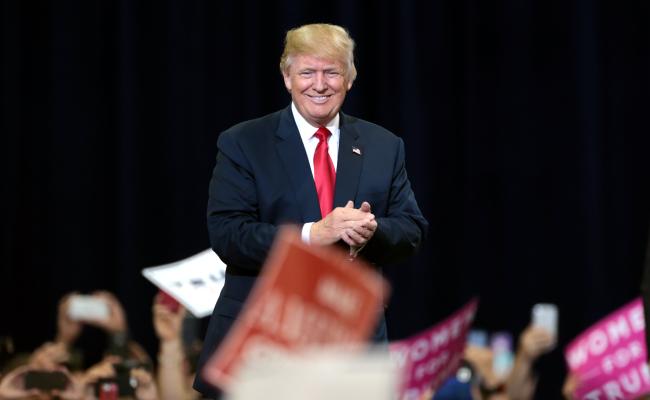Arctic Encounter Summit: “Work With Us, Not Over Us,” Says Greenlandic Politician
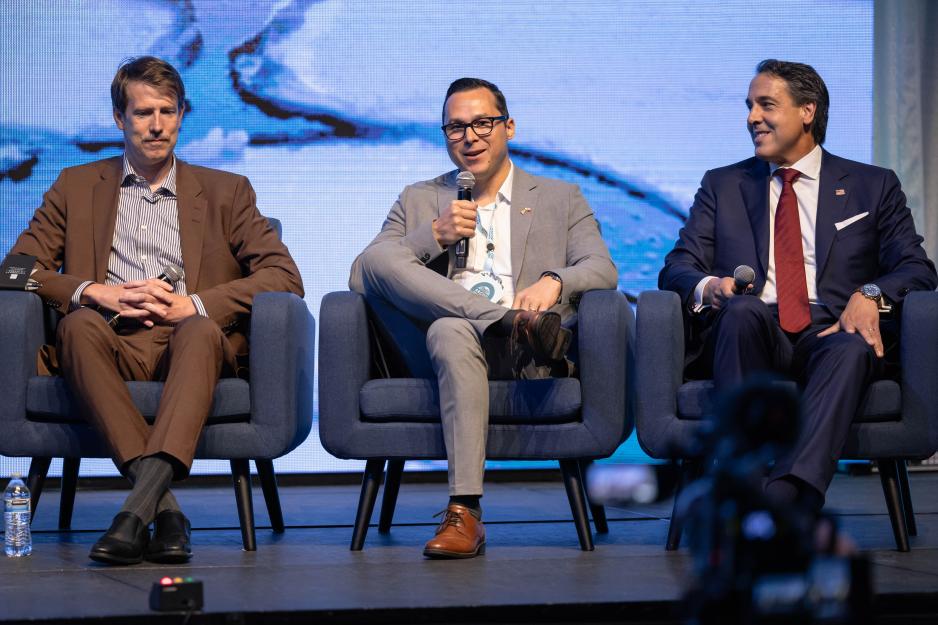
From left: Executive Director Mads Qvist Frederiksen from Arctic Economic Forum, Member of Greenlandic Parliament Kuno Fencker, and founder of American Daybreak Tom Dans, participated in a panel on Greenland at the center of Arctic geopolitics. The discussion did not include official voices from the Greenlandic government. Not shown in the picture is Greenlandic MP Aki-Matilda Høegh-Dam. (Photo: Arctic Encounter).
Anchorage, Alaska (High North News): Greenland has made it clear that it is open for business, not for sale. “We will need to diversify and find investments, but the people of Greenland should have a stake in this,” says Greenlandic Member of Parliament Kuno Fencker.
“We will not just be watching others exploit our country. We will not accept that anymore. We will need to diversify and find investments, but the people of Greenland should have a stake in this," says Member of the Greenlandic Parliament Kuno Fencker (Naleraq).
Fencker made the statements at the Arctic Encounter Summit, which recently took place in the city of Anchorage in the US Arctic state of Alaska.
There, the current and future developments of the massive Arctic island were discussed in a panel debate titled Greenland in the center of Arctic geopolitics.
As widely reported, the attention towards the country is linked to US President Donald Trump's statements of US control over Greenland, while refusing to rule out the use of military or economic force to annex the country.
“We can give our opinion now”
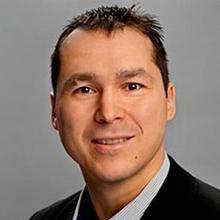
Kuno Fencker (Naleraq) is Member of the Greenlandic Parliament - Inatsisartut. The political party Naleraq seeks rapid independence for Greenland. (Photo: Nordic Council).
“With regards to the attention, we can now give our opinion to the rest of the world, as to what we want,” MP Fencker highlighted in the panel discussion.
“In Greenland, we want our own nation, to own our country. We do not want to be annexed by either the US or Denmark. We want to be represented in the international organizations that are vital for our economy, regarding fisheries, for instance, and to be there as our own country, not held on by Denmark and the Faroe Islands”, he added.
The opposition party Naleraq seeks rapid independence for Greenland. Furthermore, Fencker is known for favouring closer collaboration with the US.
The US has been very vocal, but not very active.
Not a laughing matter
In the panel debate, Executive Director of the Arctic Economic Council, Mads Qvist Frederiksen, stressed that the developments over the past 6 months have been far from "a laughing matter".
“According to most commentators in Denmark and Greenland, this has been the worst foreign policy crisis since the Second World War within the Kingdom of Denmark. It is quite a serious matter.”
“I think it is important to remember that there is no disagreement that Greenland is not for sale," he stressed, and added that most political parties in Greenland work towards independence.
"The question is the speed and time,” he continued.
On that note, Frederiksen also pointed to several structural challenges for Greenland in terms of the economy going forward, including a decreasing population and strains on resources due to climate change.
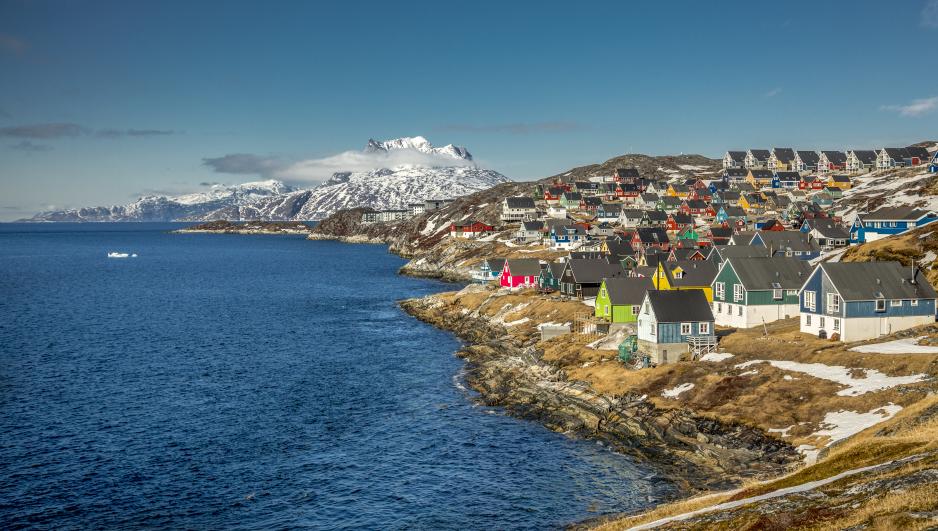
As HNN has reported, there is an intense debate in Greenland and the Danish realm about Greenlandic self-government, the development of a self-sustaining economy, and independence from the Kingdom of Denmark. (Photo of Nuuk: Pro Studio).
Economy standing on two legs
“Greenland has approximately 56,000 people. According to Greenland Statistics, it will have 47,000 people in 2050. This is going to be a challenge,” Frederiksen noted and pointed to a recent study stating that out of 54 small communities in Greenland, 17 of them have less than 50 people.
“This leads back to economic development. We need to figure out how we can create economic development along the coast and for Greenland as a whole. I am sure Greenland welcomes investment from the US, investments from anywhere. The EU is investing a lot. These kinds of partnerships benefit Greenland,” he said.
Delving into the issue of economic investment, Frederiksen said Greenland is basically standing on two legs: the funding that it receives from Denmark, also known as the block grant, as well as the export of fisheries.
The Trump administration is still filtering in Greenland.
Not much US interest in the mining sector
“The fisheries and tourism sectors are highly regulated. It is close to impossible for Americans, or Denmark for that matter, to enter these sectors. However, within mining, energy, military development, and infrastructure, that is where the Americans have opportunities,” Frederiksen said, and continued:
“The Greenlandic government owns the land and the rights to the raw materials, and they have said they are open for American investment in the mining sector as well. I have been working with the mining sector in Greenland for 15 years, and we have not seen very much interest from the US at all in the sector so far.”
“There is a potential to diversify the economy. However, that requires partners; whether it is the Kingdom of Denmark, the EU, or the US, there is definitely potential. The US has been very vocal, but not very active when it comes to putting money on the table,” Frederiksen pointed out.
Tom Dans is a venture capitalist and founder of non-profit American Daybreak which seeks to promote closer US-Greenlandic ties. American Daybreak was a.o. involved in organizing the visit to Greenland by US President Donald Trump's son. (Photo: Hilde Bye / High North News).
On the question of why the US is not taking more opportunities, even though Greenland has made clear they are open for business, Tom Dans, founder of American Daybreak, said he would have to disagree with that notion.
Dans, who has been characterized as "Trump's man in Greenland," added that the Trump administration is still “filtering in Greenland”.
“Many things are happening in that line,” Dans said, who also served as a Commissioner for the US Arctic Research Commission during Trump's first term.
Regarding mining, however, Dans noted the amount of infrastructure required, as well as the typically long lead time for such projects, referring to the long process from discovery until production.
Also read (Article continues below)
“We have to diversify in a healthy way”
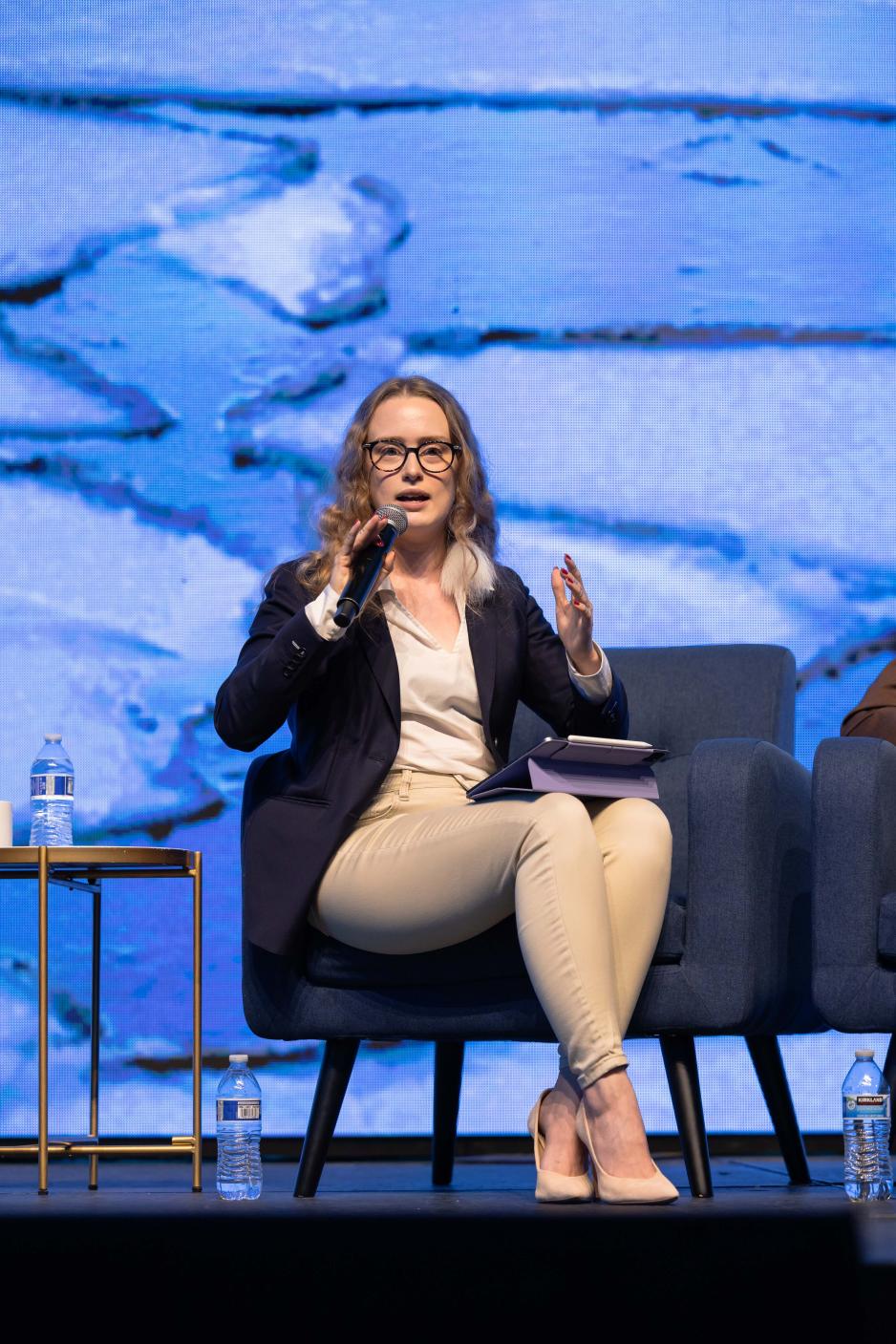
Member of the Greenlandic Parliament, Aki-Matilda Høegh-Dam (Naleraq). (Photo: Arctic Encounter).
Member of the Greenlandic Parliament, Aki-Matilda Høegh-Dam (Naleraq), stressed the need to diversify the economy.
“We welcome cooperation, but we do not welcome dependency. We have to diversify in a healthy way.”
“These investments that we see happening in the Arctic, not only in Greenland, but in Alaska and Canada as well – especially for the Indigenous communities – they always promise growth, but leave behind an inequality and foreign ownership that do not always benefit the local population,” she argued.
She further emphasized the need to ensure that the investments train local people, create long-term value, and respect culture and communities.
“Work with us, not over us”
MP Fencker echoed the need to diversify and not only rely on fisheries and the block grant from Denmark.
“As a remote country, as a big island, with a small population, we will need to diversify, to find investments. We will not need to overregulate, but we will regulate to protect the indigenous people. The people of Greenland should have a stake in this, and also get educated, get job opportunities, and not just watch others exploit our country."
"We will not accept that anymore. That is also why we are saying, work with us, not over us,” Fencker said in closing.
- The Greenlandic government consists of the coalition of Demokraatit, Inuit Ataqatigiit, Siumut og Atassut
- As HNN has reported, the opposition party Naleraq is concerned with the liberalization of the business sector according to the premises of those engaged in fishing and hunting, and seeks rapid independence for Greenland.
- The party leader of Naleraq is Pele Broberg.


